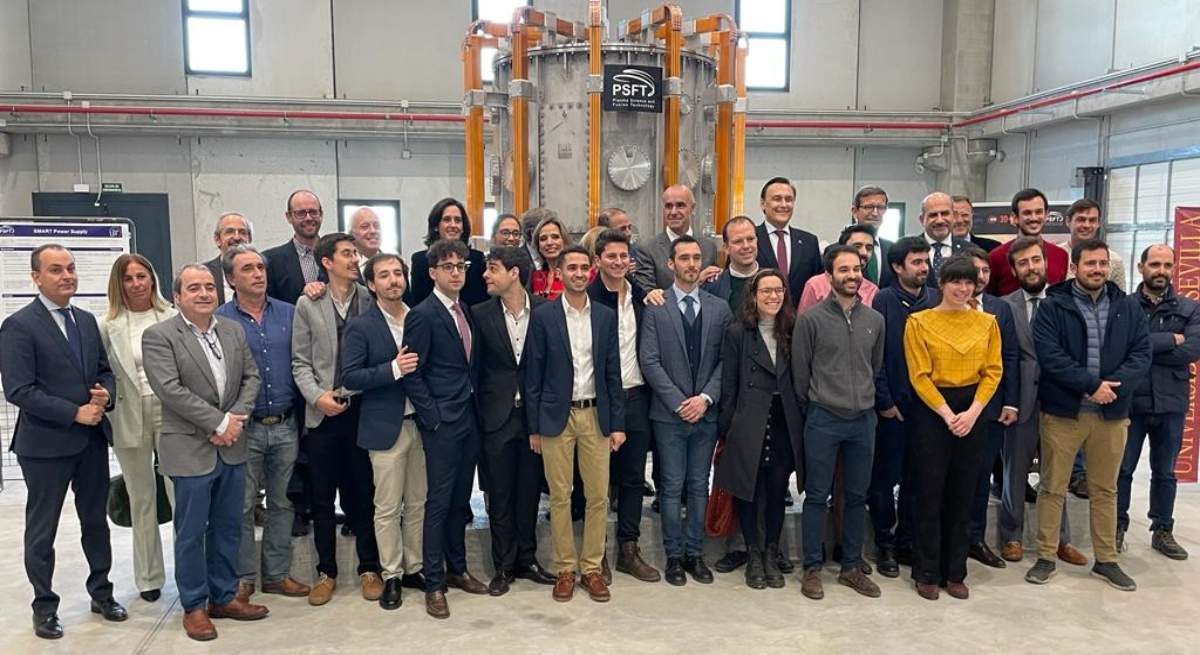The University Innovation Center of Andalusia, Alentejo and Algarve (CIU3A), a joint center of the universities of Seville, Évora and Algarve specialized in industry 4.0, logistics and sustainability, has hosted this Wednesday the presentation of the technological project Tokamak Fusion Grid, a fusion reactor of reduced size that aims to obtain large amounts of totally clean and virtually inexhaustible energy without the use of non-renewable or polluting fuels, in order to incorporate this technology to the electricity grid within approximately a decade.
The initiative led by the University of Seville aims to contribute to solving energy needs through nuclear fusion, considered “the Holy Grail” of energy solutions, according to researcher Manuel García Muñoz, who explained in detail the operation of this “tokamak” or plasma particle fusion device for the generation of large amounts of energy, in this case by means of high-confinement plasmas with negative and positive triangularity.
The purpose of the project is to offer nuclear fusion reactors “even more compact” than the existing ones, to be able to generate “the same amount of energy” as other devices of the same nature, but “at a lower cost” and greater efficiency, with a view to their introduction into the electricity grid once the project is fully developed over the next few years, for which an investment of some 500 million euros will be required from the administrations and companies in the energy sector.
Presentation of the project
The presentation of the project was attended by the rector of the University of Seville, Miguel Ángel Castro; the councilor for University, Research and Innovation, José Carlos Gómez Villamandos; the councilor for Industrial Policy and Energy, Jorge Paradela; the president of the Port of Seville, Rafael Carmona; and the Mayor of Seville, Antonio Muñoz, as well as with the “thinking minds” who have led this research project, professors Eleonora Viezzer and Manuel García Muñoz, as the initiative has had a team of specialists of more than 50 professionals from different institutions.
The counselor Villamandos has celebrated the challenge set by this project, stating that it “requires synergies at all levels”, while referring to another example aligned to the research strategy in the field of nuclear fusion, the Ifmif-Dones, a project supported by the research of scientists from the University of Granada that has the support of the Junta de Andalucía and the Central Government.
Paradela, on his side, pointed out that this new cutting-edge energy production system, such as nuclear fusion, “is a new and important step towards the sustainability horizon that we have set as a priority. We are facing a clean and virtually inexhaustible energy source that can become the main substitute for coal and gas and become the industry with the greatest projection in the coming decades”.

